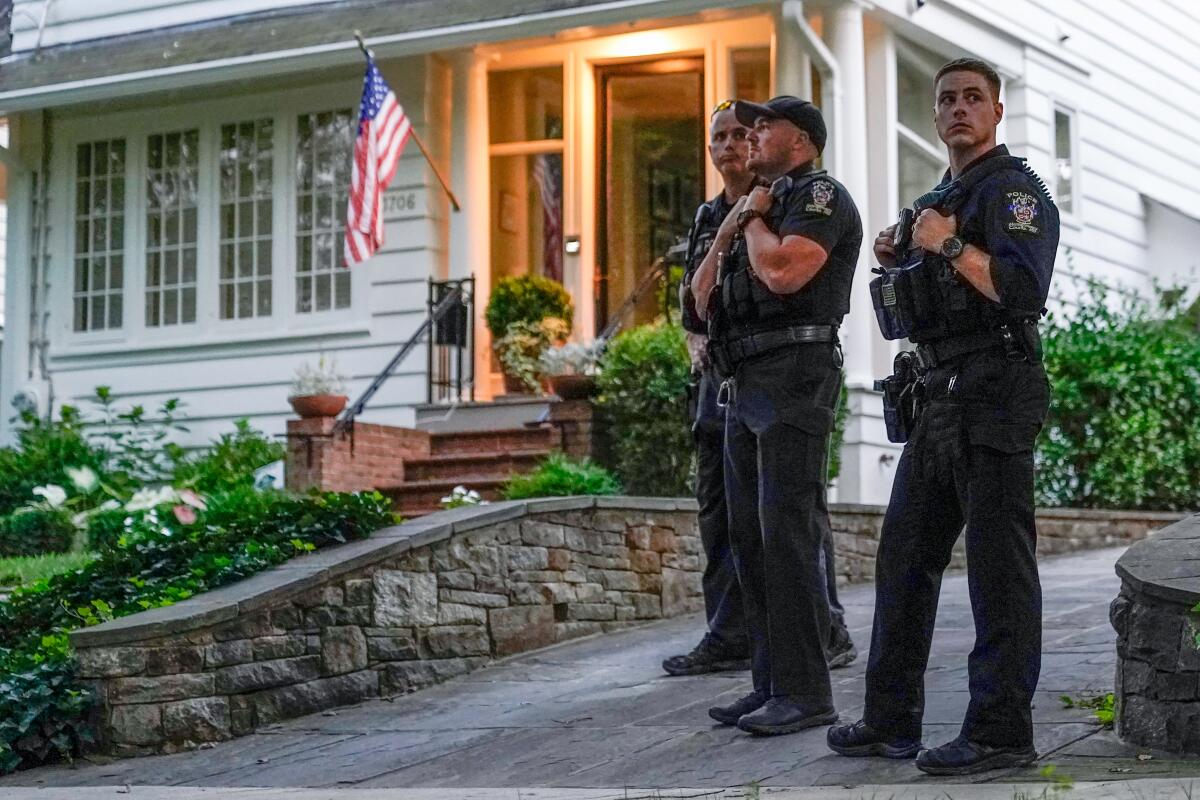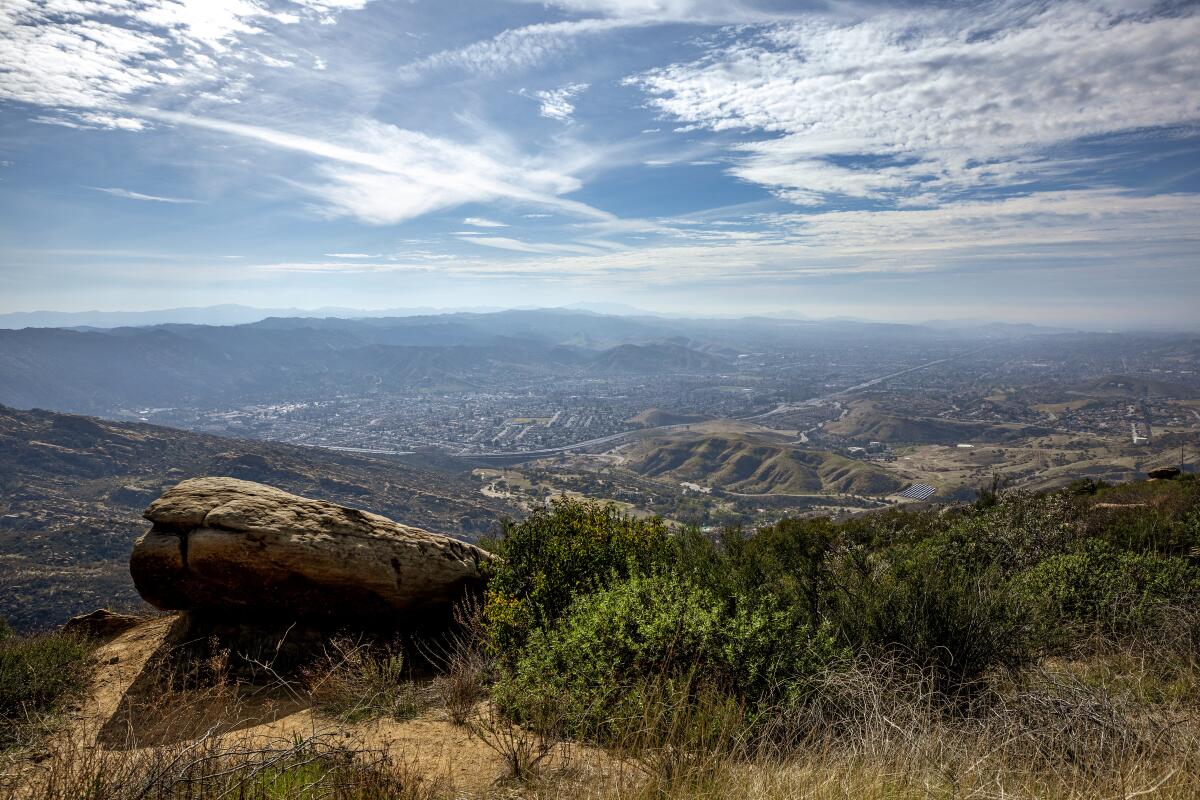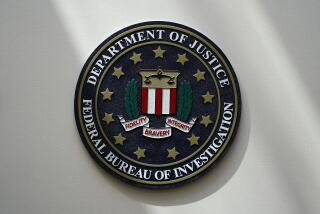A California man’s journey to kill Justice Kavanaugh ended with a desperate plea, feds say

The taxicab pulled to a stop in front of a white colonial residence in the suburbs of Washington, D.C.
It was just after 1 a.m. Wednesday, and out from the car stepped a man clad in a gray T-shirt and black pants, toting a backpack and a suitcase he had zip-tied shut.
Tucked inside the luggage was a black tactical vest, pepper spray, duct tape, a knife, a hammer, a screwdriver, a crowbar, more zip ties, and a Glock 17 pistol with ammunition.
Nicholas Roske, 26, had just arrived in the nation’s capital from his home state of California with a specific target in mind, as he later told federal agents and a 911 dispatcher.
“Do you know someone out here?” the dispatcher asked, according to a recording of the call released by authorities.
“Brett Kavanaugh,” Roske replied.
“You said ‘Red,’ like the color?”
“Brett, the Supreme Court justice,” Roske clarified.
The plan, he said in the recording, was not only to hurt Kavanaugh, but also take his own life.
Yet as deliberate as his journey was to travel thousands of miles with a trunk of weaponry, Roske seemingly abandoned his alleged plot just a few yards from where the Supreme Court justice slept.
He spotted two deputy U.S. marshals stationed outside the Kavanaugh home, turned to walk down the street, and later dialed 911.
He reached a dispatcher and said he needed medical help. The dispatcher urged him to breathe.
“I want to be fully compliant,” Roske told the dispatcher, “so whatever they want me to do, I’ll do.”

::
By his own account, Roske never lived anywhere else but California — save for a brief stint in Seattle.
Born in 1996 to Colleen, a special education teacher, and Vernon, an insurance representative, he spent much of his early years in the San Fernando Valley.
For a time Roske was home-schooled, an education that was supplemented with programs at Shepherd’s Community Church, a nondenominational Christian church on Saticoy Street in Canoga Park, according to a fellow classmate there.
At the church, Roske was part of the youth group, Awana, where he and other kids would memorize Bible verses and play games, the former classmate recalled.
By 2009, the Roske family — including Nicholas and his younger sister — had decamped Encino for a three-bedroom home in Simi Valley with a view of the Santa Susana Mountains.
He ran cross-country at Simi Valley High School, donning the Pioneers’ maroon and gold as he raced against peers in Calabasas and Chatsworth.
After graduating high school in 2014, a district official confirmed, he took classes at Moorpark Community College. He spent his final two years of undergraduate studies at Cal State Northridge, according to a spokeswoman for the university. Roske majored in philosophy and graduated in 2018.
“He was a philosophy major and I studied political science, and we would shoot ideas back and forth,” former high school and college classmate Kenny Vergini told the New York Post. “He was [a] really smart guy. … But he never did anything or said anything that really stood out.”
What followed after college is unclear. An online resume showed just one job — office manager at a pest control firm in Simi Valley, a position he quit last year.
Nor did Roske express any specific political views. When he registered to vote in 2022, he did not affiliate with a political party, according to records reviewed by The Times.

::
“You’re doing good here, just talking to me, Nicholas,” the dispatcher said as the minutes passed. “It might be quiet on my end, but I’m still right here with you, OK?”
In the early morning hours Wednesday, Roske had said he was standing by the curb around the corner from Kavanaugh’s home in Chevy Chase, Md., and as the dispatcher gently questioned him, explained that he was in distress and had been hospitalized several times.
“I need psychiatric help. But, no, I’m not injured, if that’s what you are asking,” Roske said, adding: “Not physically.”
The dispatcher urged Roske to keep his hands visible and adhere to police commands, promising that officers would arrive “as soon as possible.”
Roske’s answers were precise: He is 26 years old, stands 6 feet and weighs 170 pounds. He has light brown hair. He had not used alcohol or drugs that day, and he said he had traveled alone.
“I took a taxi from the airport,” Roske said. “It dropped me off at his address. I’m just around the corner from it.”
Asked where he traveled from, he responded, “Simi Valley ... where the Ronald Reagan library is.”
“Senior Valley?”
“Simi Valley. S-I-M-I. Yeah. It’s just outside Los Angeles.”
Roske said he had found Kavanaugh’s home address online by matching press photos of protests outside the residence with online street directories and mapped images of the property.
“You said you thought about this before?” the dispatcher asked at one point.
“Correct.”
“Just keep breathing, you are doing fine,” the dispatcher said, before turning to Roske’s family. Roske lived with his parents, who were unaware of his plans; both were on vacation in Hawaii, he said. The family has a dog, Molly, an 18-year-old cockapoo.
Sirens then blared in the background of the 911 call released by authorities.
“Oh, they’re almost here,” Roske said.
“They are only coming to help you,” the dispatcher said. “If they give you any commands or anything, we can always disconnect, but just make sure you always follow their commands.”
With police apparently descending closer, the dispatcher pressed ahead, steering Roske away from the matter at hand and asking whether he preferred Seattle to Los Angeles.
“It is a different atmosphere,” Roske said, his voice trailing off. “Yes! They’re here — I’m going to hang up,” he told the dispatcher.
The end of the 911 call picked up the faint command of a responding officer: “Stand up, and turn away from us.”
::
Police in Montgomery County said Roske was taken into custody without incident.
Once at the precinct in the Maryland suburb, he agreed to speak with federal agents and told detectives he was upset over the recent leak of a draft Supreme Court decision that would rescind women’s right to an abortion, as well as the recent school massacre in Uvalde, Texas.
“Roske indicated that he believed the Justice that he intended to kill would side with 2nd Amendment decisions that would loosen gun control laws,” an FBI agent wrote in an affidavit filed in court.
To Roske, slaying Kavanaugh — then himself — was a means to give his own life purpose, according to the affidavit’s summary of his interview.
Within hours of his arrest, Roske was charged in U.S. District Court in Maryland with attempting to kidnap or murder a judge.
If convicted, he faces up to 20 years in federal prison. Later Wednesday, FBI agents burst into the Roske family’s home in Simi Valley, scouring the residence for evidence as television news crews posted outside and snapped photos of agents.
“He’s a good kid,” Roske’s grandfather, Dan Shannon, told KCBS-TV Channel 2. He said the allegations were “extremely” out of character.
“We’re in crisis right now, so we don’t know,” Shannon said.
Relatives of Roske, including his parents, did not respond to messages seeking comment, nor did the public defender appointed to represent him.
The summary of the case submitted to court by an FBI agent makes no mention of Roske’s stated psychiatric distress.
Appearing in a Greenbelt, Md., courtroom this week, a magistrate judge asked if he understood what was happening and whether he was thinking clearly.
“I think I have a reasonable understanding,” Roske said, “but I wouldn’t say I’m thinking clearly.”
More to Read
Sign up for Essential California
The most important California stories and recommendations in your inbox every morning.
You may occasionally receive promotional content from the Los Angeles Times.












